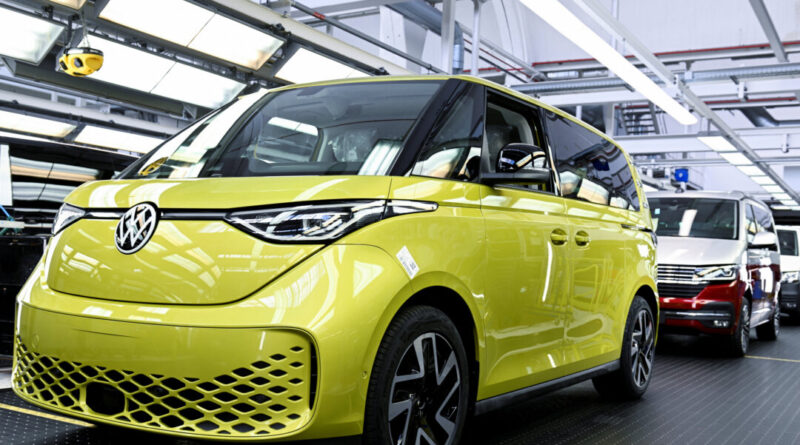Germany denies Italy’s request for early review of ban on gas-powered cars
By 2035, the European Union will ban all new gas and diesel engine cars, but Italy has requested a review of this legislation.
Germany has turned down Italy’s proposal to advance the review of the ban on the sale of new internal combustion engine cars by 2035.
Last year, the European Union passed a groundbreaking law prohibiting the sale of new gas and diesel cars from 2035 and mandating that all new cars have zero CO2 emissions.
The EU Commission had planned a review of the law in 2026 to evaluate hybrid cars and determine if their technology had progressed enough to be exempt from the ban.
Italy had wanted to bring forward the review date.
German Environment Minister Steffi Lemke stated on Wednesday that Germany will not consider weakening the European CO2 emission standards and does not support Italy’s proposal.
Car manufacturers are facing stricter CO2 targets in 2025, with the average emissions cap for new vehicle sales in Europe decreasing from 116g/km in 2024 to 94 grams/km.
Going over the CO2 limits could result in fines of 95 euros per excess CO2 g/km for each vehicle sold, potentially leading to significant penalties for auto manufacturers.
The impending penalties coincide with a decline in demand for electric vehicles (EVs) across Europe. In August, new car sales in the EU dropped by 18.3 percent to their lowest level in three years, according to the European Automobile Manufacturers’ Association (ACEA).
The ACEA has called on the commission to set earlier review targets to alleviate pressure on carmakers, citing the lack of necessary conditions to boost EV sales such as charging infrastructure, affordable energy, tax incentives, and raw material supply.
Discussions are underway ahead of a vote on Friday regarding the imposition of tariffs on imports of EVs from China.
German Economy Minister Robert Habeck expressed hope that a political solution will be considered by the European Commission.
France, Italy, Poland, and Greece are reportedly contemplating voting in favor of implementing tariffs of up to 45 percent on imported electric vehicles produced in China due to alleged subsidies that result in artificially low prices.
The European Commission is investigating these allegations and has suggested a range of tariffs for a vote by the 27-member bloc on Oct. 4.
The proposed tariffs vary from 7.8 percent for Tesla cars to 35.3 percent for Chinese brands like SAIC, as well as other companies accused of non-cooperation with the EU probe.
These tariffs would be in addition to the standard 10 percent import duty for cars in the EU.
According to EU regulations, the commission can impose definitive tariffs for five years unless a qualified majority of 15 EU nations, representing 65 percent of the bloc’s population, opposes the plan.
The EU executive indicated a willingness to explore alternatives to tariffs, including a price undertaking involving a minimum import price and a volume limit, although these suggestions have already been rejected by Chinese automakers.
Reuters contributed to this report.



